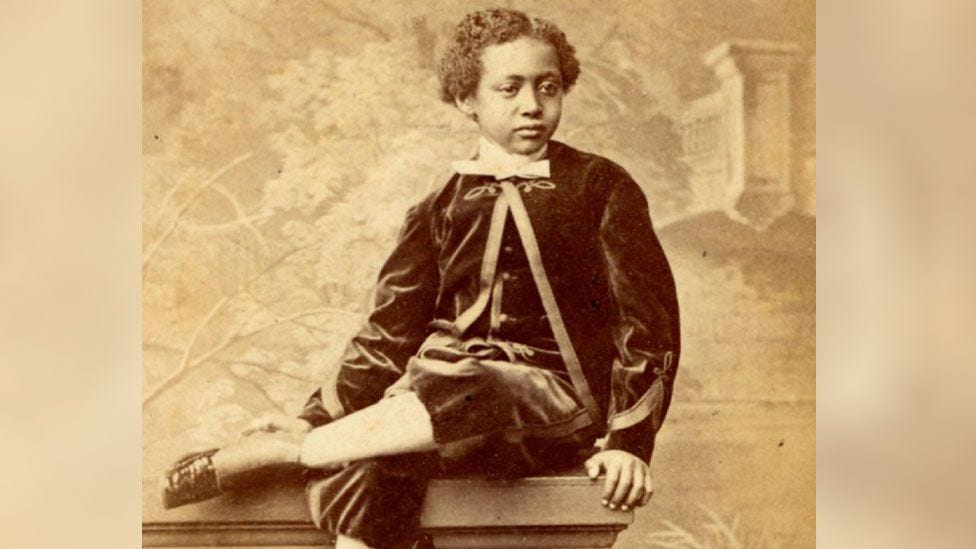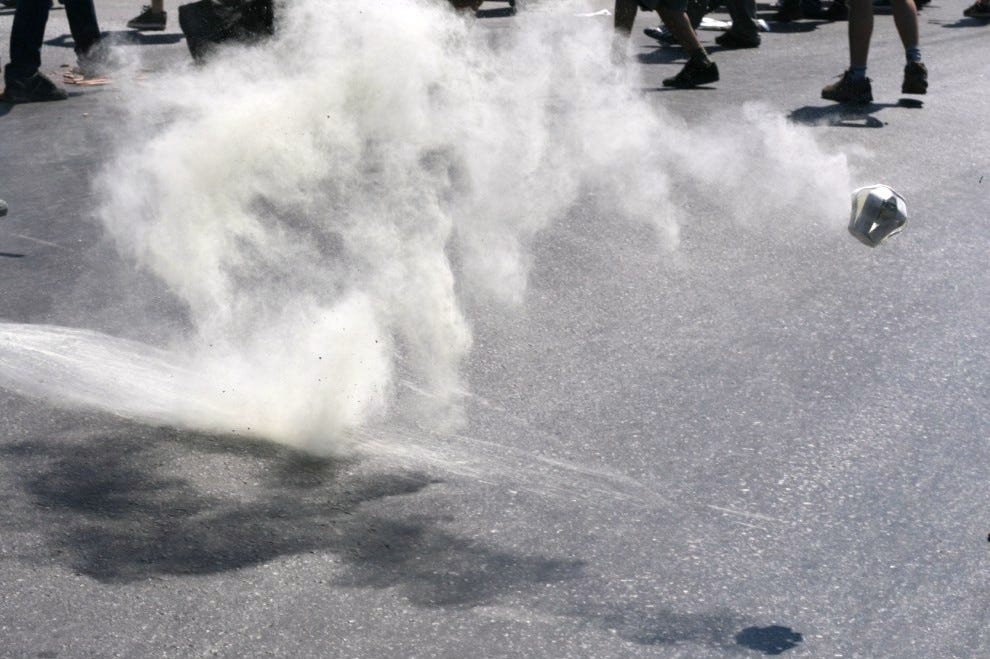🔅 Nigeria's Big Bet on Dangote Refinery
Plus: How an Ethiopian Prince Ended Up Buried in Windsor Castle, Congo Protesters Tear-Gassed, Groundbreaking HIV-Prevention Drug Gets a Price Cut, And much more...
This week we’re running a poll.
A few months ago, we ran the same poll, but given the results were so tight and our reader-base has grown, we thought we might just ask you again:
Cast your vote and help shape our newsletter. Now, let's dive into the news!
Photo of the day: Lagos, Nigeria

Markets:
🟢 Nigerian SE: 52,621.19 (+0.48%)
🔴 Johannesburg SE: 76,748.27 (-1.56%)
🔴 Ghana SE: 2,534.80 (-0.95%)
🟢 Nairobi SE: 97.98 (+0.24%)
🔴 US S&P 500: 4,159.89 (-0.78%)
🔴 Shanghai Composite: 3,246.24 (-1.52%)
*Data accurate as of the close of markets across the continent
ENERGY
Nigeria's Big Bet on Dangote Refinery
Nigeria just flipped the switch on the Dangote Refinery, and the country is really hoping it pays off.
This massive petrochemical complex cost $19 billion and has a capacity of 650,000 barrels per day. President Buhari was there for the inauguration, as he sees this as the answer to fuel shortages in Nigeria.
The goal is for Nigeria to become a net exporter of petroleum products, and for the surplus petrol to be sold abroad.
The Dangote Refinery also has a 435-megawatt power station, a deep seaport and a fertiliser unit.
But is the refinery really going to do the job?
Aliko Dangote, Africa’s richest man, is confident that the refinery can satisfy Nigerian demand and eliminate “the tragedy of import dependency”, but an analyst from Energy Aspects says it will take until 2025 to reach full production.
The refinery needs a constant supply of crude, but Nigeria’s oil production has been declining due to oil theft, vandalism of pipelines and underinvestment.
So where will the refinery get its fuel from?
State-owned oil company Nigerian National Petroleum Corporation (NNPC) has a 20 per cent stake in the refinery, so it will likely get some of the crude from there.
But NNPC doesn’t have an agreement with oil majors in Nigeria, and can’t always meet the refinery’s needs. In that case, the refinery will have to turn to other traders.
In the long run, Energy Aspects believes the refinery could end Nigeria’s petrol deficit, reshape the Atlantic basin petrol market, and export diesel that meets EU standards.
A real game changer? Perhaps!

Baobab with friends and colleagues for free daily updates on African business, money, and current affairs.
OTHER HEADLINES
Across the Continent
🇪🇹 How an Ethiopian Prince Ended Up Buried in Windsor Castle | Prince Alemayehu’s family has a request: they want the remains of their ancestor—a 19th Century Ethiopian prince—to be returned to their homeland. But Buckingham Palace says no way. Prince Alemayehu’s story is a long one. He was brought to the UK at the tender age of seven, an orphan after his father, Emperor Tewodros II, committed suicide rather than become a British prisoner of war. Queen Victoria, charmed by the prince, paid for his education, and then for his burial in the catacombs of St George’s Chapel in Windsor Castle when he died aged 18. The palace says that exhuming his remains could affect others buried there, and that they’re sensitive to the need to honour his memory—but also to preserve the “dignity of the departed.”
🇨🇩 Congo Protesters Tear-Gassed | This weekend, security forces in the DRC fired tear gas at protesters demonstrating over voter registration irregularities and rising living costs. Opposition leaders called for the protest and, despite being tear-gassed and harassed by security forces, Martin Fayulu and Moise Katumbi (opposition leaders expected to run in the upcoming presidential election) held firm in their stance. “The electoral register is not reliable and we'll not compromise on this issue,” said Fayulu.
🇿🇦 Groundbreaking HIV-Prevention Drug Gets a Price Cut | Good news for people at risk of HIV infection in Africa: the groundbreaking HIV-prevention drug cabotegravir will now be made in South Africa for the first time, meaning that millions of people will soon have access to a two-monthly jab that can almost eliminate their chances of contracting the virus. The medicine was originally selling for around $3,500 in the US—way too expensive for lower-income countries to afford. Leading figures in healthcare have been pushing for the price to be lowered, and by having it manufactured on the continent, it now looks like their wishes have been granted. Cipla, the Indian drug company that has been granted a licence to make the drug, has promised to sell it at a “not-for-profit” price. It’s the first step towards getting the drug to those who need it, but it’ll still be a few years before it hits the market.

FOOD FOR THOUGHT
Proverb of the Day
“If you are building a house and a nail breaks, do you stop building or do you change the nail?”
— Rwandan Proverb.




![A worker walks past structural parts of an under construction oil refinery plant at Dangote refinery in Ibeju Lekki district, on the outskirts of Lagos, Nigeria August 7, 2019. Picture taken August 7, 2019 [Temilade Adelaja/Reuters] A worker walks past structural parts of an under construction oil refinery plant at Dangote refinery in Ibeju Lekki district, on the outskirts of Lagos, Nigeria August 7, 2019. Picture taken August 7, 2019 [Temilade Adelaja/Reuters]](https://substackcdn.com/image/fetch/w_1456,c_limit,f_auto,q_auto:good,fl_progressive:steep/https%3A%2F%2Fsubstack-post-media.s3.amazonaws.com%2Fpublic%2Fimages%2Fc1061f1e-eab0-4cc8-bf2c-4fc184822323_770x513.jpeg)

